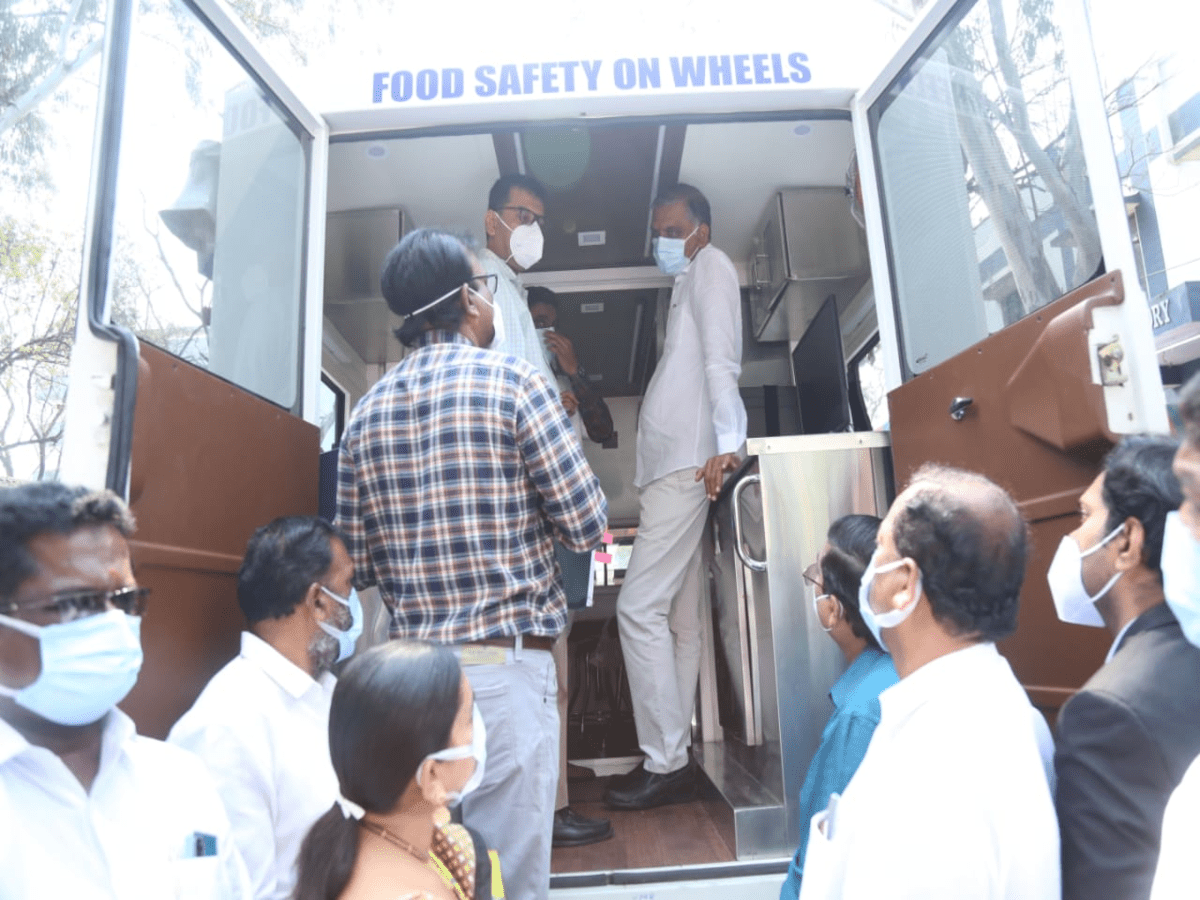
Hyderabad: Consumers in Telangana will now be able to test for adulterants in food products that they eat on a regular basis.
The Telangana state health department, in collaboration with the Food Safety and Standards Authority of India (FSSAI), launched the “Food Safety on Wheels” concept on Friday, which will conduct simple tests to detect common adulterants in milk, water, edible oil, and other food items consumed on a daily basis.
The health minister of Telangana unveiled four food testing mobile units worth Rs 2.40 crore on Friday, which would visit metropolitan areas and conduct food testing.
Aside from the mobile units, he also dedicated the renovated Food Testing Laboratory of the Institute of Preventive Medicine (IPM), Nacharam, which was funded by FSSAI at a cost of Rs 10 crore.
The director of the Institute of Preventive Medicine said, “The food testing facilities will be offered free of cost for people of Telangana. Apart from Hyderabad, these mobile labs will be introduced in Warangal, Khammam and Nizamabad, and the facilities will also be used for building awareness on food safety, hygiene and promoting healthy eating habits among citizens at large.”
The mobile testing labs will also provide food handlers and managers in food enterprises, particularly small food firms, with training and certification.
Furthermore, top health authorities stated that these mobile units will assist field functionaries in expanding their outreach and conducting monitoring activities even in remote places.
The Rs 10 crore upgrade of IPM’s food testing laboratory in Nacharam is part of the FSSAI’s bigger plan to enhance food testing infrastructure in the country, which is anticipated to cost Rs 482 crore in total.
The goal is to concentrate on all areas of food testing systems, including the development of state food laboratories and referral labs, as well as the capacity building of food analysts and other technical professionals involved in the process.

